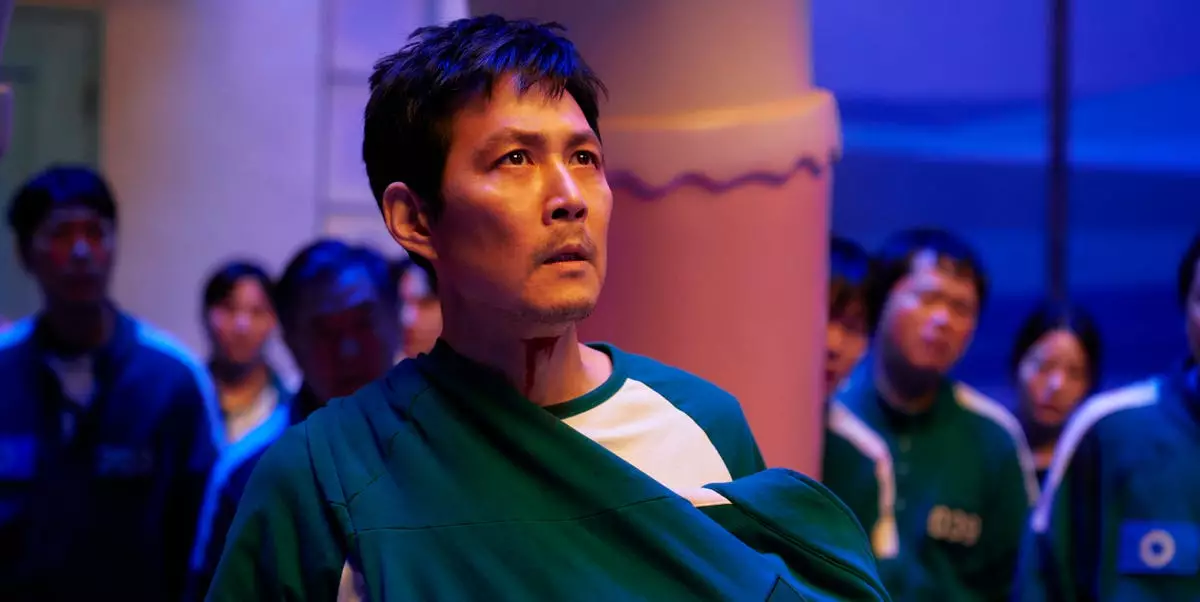“Squid Game” has captivated audiences with its visceral portrayal of humanity’s darker instincts, presenting a brutal critique of societal inequalities. Its culminating season took the narrative to an emotionally taxing climax, diverging sharply from traditional celebratory or victorious finales often seen in entertainment. The show’s creator, Hwang Dong-hyuk, consciously chose an ending rooted in sacrifice, reflective of broader societal themes rather than personal triumph. This decision challenges viewers to reconsider notions of happy endings, emphasizing that sometimes true heroism lies in self-denial rather than personal gain.
Historically, stories of victory often revolve around perseverance and individual success. However, “Squid Game” subverts this paradigm by depicting the protagonist, Gi-hun, as someone who prioritizes collective well-being over personal salvation. This choice underscores the show’s core message: societal change and hope for the future depend on selfless acts, even in environments as brutal as the game’s arena. The ending thus becomes a powerful statement, suggesting that genuine heroism involves sacrifice for the greater good—a notion that resonates deeply in today’s climate of social unrest and economic disparity.
Reflecting on Societal Darkness and Hope
The decision to craft a less optimistic ending was not made lightly. Hwang Dong-hyuk was motivated by a desire to reflect contemporary global struggles—intensifying inequality, environmental crises, political instability, and the erosion of hope among younger generations. These realities cast a shadow over the human condition, making a traditional “happy ending” seem both saccharine and disconnected from current truths. Instead, the finale becomes a mirror held up to society, emphasizing that progress often requires sacrifice and that hope must sometimes be fostered through uncomfortable truths.
Gi-hun’s sacrifice, then, symbolizes a call for responsible action. It is a reminder that future generations will inherit the consequences of current greed and neglect. “Squid Game” thus evolves beyond a mere critique of socio-economic disparities into a reflection on moral responsibility: how individuals and societies can choose to act in ways that foster hope rather than despair. The ending invites viewers to think about their own roles in shaping a better future, even if that means embracing discomfort and difficult choices.
Why Sacrifice Triumphs Over Victory
The narrative’s emphasis on sacrifice rather than victory marks a profound shift in storytelling ethos. Gi-hun’s ultimate act of selflessness elevates him from a mere survivor to a moral hero. Unlike conventional heroic arcs predicated on triumph, this ending posits that true bravery resides in putting others first. The image of Gi-hun surrendering himself to ensure that the child escapes serves as a potent metaphor for societal salvation. It signifies that sometimes the greatest strength is the willingness to step back and allow others to thrive.
This thematic choice sparks an essential conversation about whether society values self-interest over collective well-being. In a world obsessed with personal success, “Squid Game” counters this narrative by suggesting that meaningful change often requires us to accept personal loss for a higher purpose. Gi-hun’s sacrifice is not merely about the fate of a fictional child but acts as a broader allegory for moral courage in real-world contexts.
Hwang’s reflection on the world’s worsening conditions underscores the need for such sacrifices. He implies that leadership and moral responsibility are crucial in times of crisis—those who seek change, like Gi-hun, must be willing to face personal peril to inspire collective hope. In that sense, the finale becomes more than a story; it functions as a moral blueprint urging audiences to consider the importance of self-sacrifice amidst chaos.
Reimagining Hope and Resilience
While traditional stories often focus on the individual’s journey to success, “Squid Game” proposes a more nuanced depiction of resilience—one rooted in altruism. The choice to end on a note of sacrifice rather than victory challenges viewers to redefine what it means to be the hero. It advocates that resilience isn’t merely about enduring adversity but about acting morally, even when it’s costly.
The ending also prompts critical questions: can hope survive in a world rife with injustice? Is it enough to simply survive, or must we actively seek to change the structures that perpetuate suffering? “Squid Game” navigates these questions by positioning sacrifice as a fundamental act of hope—an acknowledgment that a better future demands difficult choices today.
The impact of such a narrative is profound. It empowers viewers to see themselves as agents of change, inspiring real-world reflection and action. The series’s conclusion, with its emphasis on collective sacrifice, underscores that hope is not naive but a moral imperative, urging each person to consider how their actions contribute to or hinder societal progress.
In the end, “Squid Game” isn’t just a brutal spectacle; it’s a moral commentary wrapped in gripping storytelling. Its bold choice to reject a conventional happy ending transforms it into a catalyst for introspection—challenging us all to prioritize the collective future over individual comfort. This provocative finale leaves a lasting imprint: that true heroism is rooted in sacrifice, and hope begins where selfishness ends.

